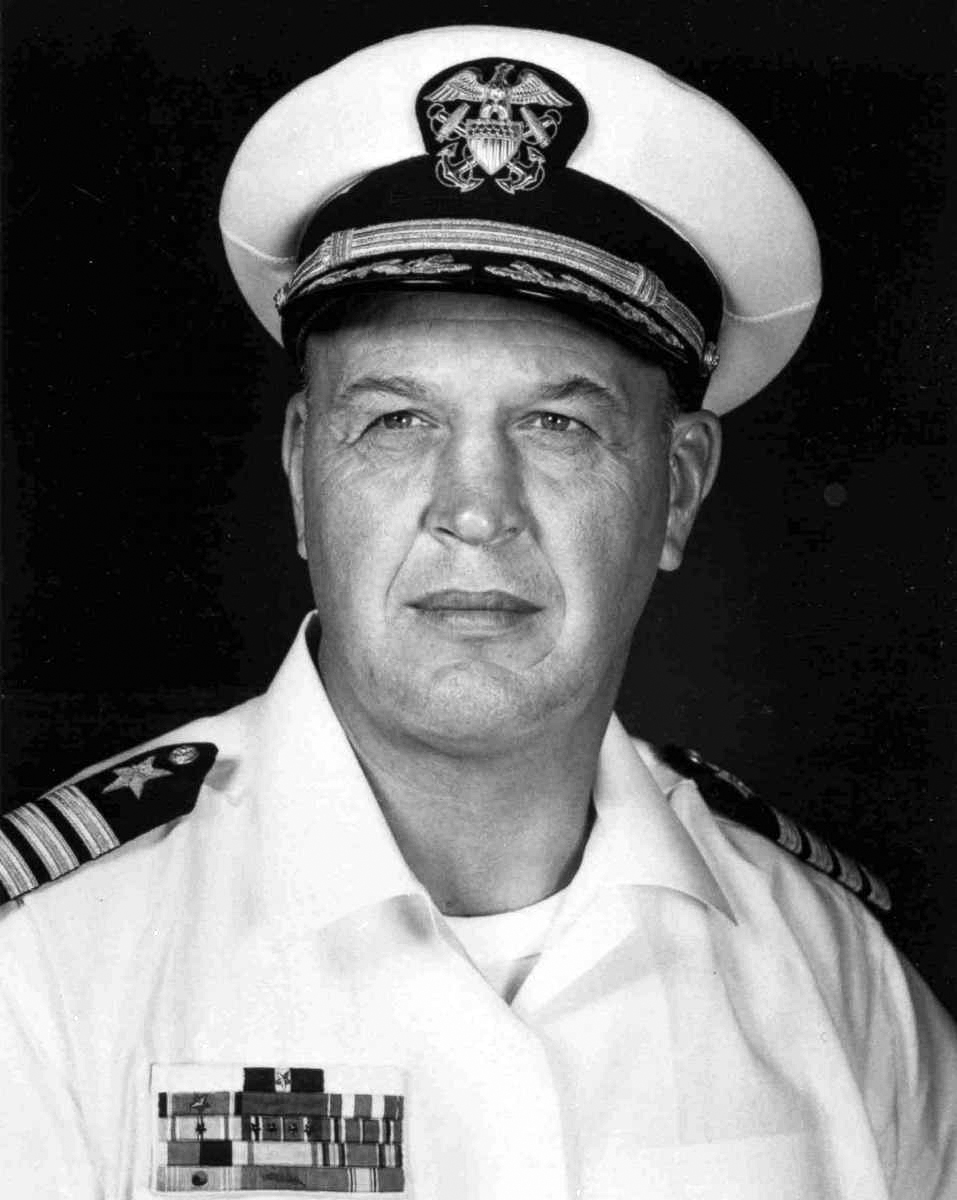BUCKLEW-PHIL
PHIL HINKLE BUCKLEW

CAPT

A LEGENDARY NAVY CAREER
Captain Phil Hinkle Bucklew became a legendary figure within Navy circles, devoting his entire Navy career to scouting, raiding, and intelligence. One of the Navy's first "frogmen" and a charter member of its Scouts and Raiders of World War II, he scouted the beaches at Normandy, Salerno, and Sicily weeks before Allied invasions. Then, in China, he slipped by Japanese occupation troops to conduct a 400-mile overland scouting trip of the coastline near Hong Kong. In 1964, Captain Bucklew led a study team to investigate the communist infiltration problems in South Vietnam. Prior to his Navy career, Captain Bucklew was a collegiate and professional football star.
Phil Hinkle Bucklew was born and raised in Columbus, Ohio. He attended Xavier University where he earned fame as a football player and then played for the Cleveland Rams in 1937 and 1938. From 1930 until 1934 he served in the Naval Reserve. On December 8, 1941, the day after the Japanese attack on Pearl Harbor, he volunteered for military service and following training at Norfolk, Virginia, was commissioned an ensign. He soon joined the Navy Scouts and Raiders, participated in the invasion of North Africa in late 1942, and was awarded his first Navy Cross for landings on Sicily in July 1943, and was awarded the Silver Star for landings at Salerno, Italy. On D-Day, June 6, 1944, Bucklew commanded a scout boat assigned to lead the first wave of tank carrying landing craft to Omaha Beach. He was awarded his second Navy Cross for his actions that day. His final assignment during World War Two took him to China where he scouted the Chinese coast, helped to train and equip Chinese guerrilla fighters and gathered intelligence on the Japanese along the way.
Following World War Two, Bucklew was married, left active duty and completed his education at Columbia University where he also worked as a Navy ROTC instructor and coached the football team. Returning to active duty in 1948, he served at various bases in the United States, Korea and Vietnam. In 1955, then LCDR Bucklew was assigned to a Naval Advisory Group in Korea, operating from a base off Inchon where the group conducted infiltration, harassment, and psychological operations against North Korea. In 1962, after 20 years of service, CAPT Buckley was facing mandatory retirement but was selected to command the Naval Special Warfare Group One consisting of SEAL Team 1, Underwater Demolition Teams 11 and 12, and Boat Support Unit 1. Ironically, Bucklew never qualified at BUD/S himself. In 1967 CAMP Bucklew relinquished command of NSWG1 and was assigned to the Department of the Navy at the Pentagon, where he served until his retirement in March 1969.
CAPT Bucklew is often called “The Father of Naval Special Warfare” and his written memoirs were published in 1982. In 1987 the Naval Special Warfare Center in Coronado, California, was named in his honor. CAPT Bucklew died on December 30, 1992 in Fairfax, Virginia, after suffering a stroke. He is buried at Arlington National Cemetery.
Submitted by CDR Roy A. Mosteller, USNR (Ret)

